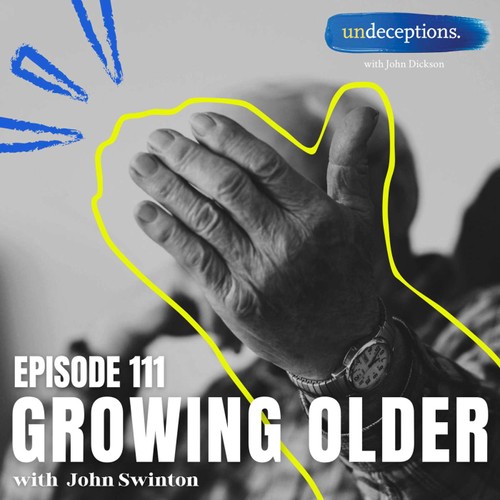
 Undeceptions with John Dickson
Undeceptions with John Dickson 111. Growing Older
Nov 5, 2023
This podcast explores the societal pressures of growing older, the ethical implications of treating dementia, the importance of spirituality in aging, the lack of meaning in aging and its impact on mental health, the importance of kinship and its relation to euthanasia, the burden of dementia on individuals and society, the Christian tradition of elderly care, the power of memory and love, and the comfort of being known by others and God.
Chapters
Transcript
Episode notes
1 2 3 4 5 6 7 8 9 10
Introduction
00:00 • 2min
Embracing the Reality of Growing Older
02:09 • 4min
Exploring the Ethical Implications of Treating Individuals with Dementia
06:09 • 5min
Exploring Spirituality and Aging
10:56 • 3min
The Lack of Meaning in Aging
14:22 • 10min
Kinship, Autonomy, and Euthanasia
23:58 • 5min
The Impact of Dementia on Individuals and Society
29:19 • 11min
Caring for Aging Parents and the Christian Tradition of Elderly Care
39:58 • 5min
The Power of Memory and Love
45:21 • 28min
The Comfort of Being Known
01:12:53 • 3min
